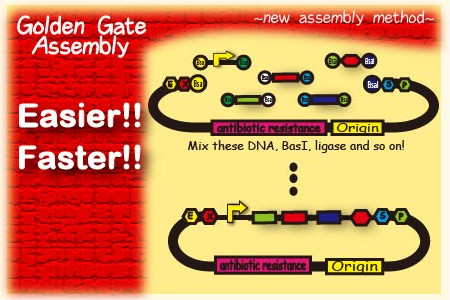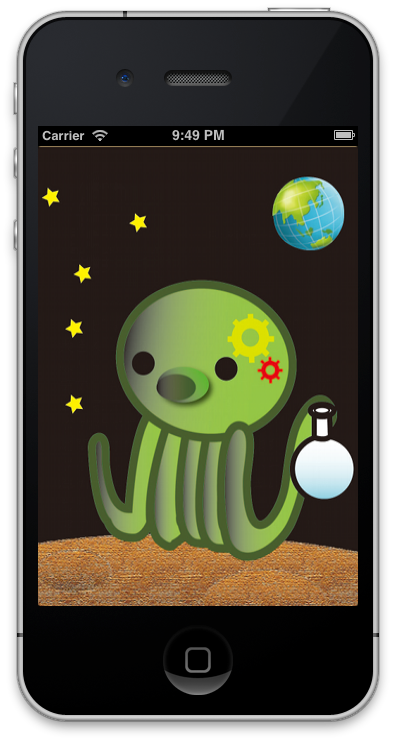Team:Kyoto
From 2012.igem.org
(→link=) |
(→link=) |
||
| Line 113: | Line 113: | ||
<font size="4">Kyoto university Academic day</font><br> | <font size="4">Kyoto university Academic day</font><br> | ||
| + | ---- | ||
| + | We told how to conduct an experiment of gene recombination, what "iGEM" is, and our results of research to children, housewives, teachers, and so on in this event. | ||
| + | <br style="clear: both;" /> | ||
| + | |||
| + | <font size="4">November Festival and Open Campus at Kyoto University</font><br> | ||
---- | ---- | ||
We told how to conduct an experiment of gene recombination, what "iGEM" is, and our results of research to children, housewives, teachers, and so on in this event. | We told how to conduct an experiment of gene recombination, what "iGEM" is, and our results of research to children, housewives, teachers, and so on in this event. | ||
Revision as of 19:32, 26 September 2012
Contents |
How wonderful would it be, if you can see flowers in full glory throughout the year? If flowers bloom whenever you want, you could eat tasty fruits and see beautiful flowers any time. It is what we have been looking for, the technology to make flowers bloom. There is a plant hormone that enables us to realize this dream. The plant hormone, Florigen, controls and triggers flowering in plants. We will create Flower Fairy E.coli. This will make Florigen and transfer it into plant cells! This will enable us to make flowers bloom anytime!





Have you ever hoped for a faster experiment? We guess, you have. In order to achieve a successful study, we have to experiment day by day. This is the case for iGEM, too. iGEMers tend to experiment on Escherichia.coli, and almost all experiments take a lot of time. Unless our guess is wrong, all scholars and iGEMers undergo hardships that make it seem impossible to complete their work by a deadline. Golden Gate Assembly made up by Carola Engler, Romy Kandzia, Sylvestre Marillonnet enables us to construct genes faster than any other assembly methods. We will confirm this assembly method and will so some experiments to check how the number of promoters influences the strength of transcription.
This year, we implemented nine projects on "human practice".
Especially, we gave high priority to two programs, "Making iPhone app" and "Educational program"
We created an iPhone app named "iColi" which is a way to bring Japanese closer to synthetic biology.
In addition, we carried out a lecture of synthetic biology and biochemistry at many places, Hibiya high school, Horikawa high school, Kyoto university, and so on.
Thanks to our activities which we conduct this year, actually, the number of people who know synthetic biology and gene recombination is increasing.
Application
One of the main projects is to creat an iphone apps to let many Japanese know synthetic biology. We set the project because some Japanese people seemed to have a bad impression for gene recombination, and we wanted to modify this bias. In addition, the number of Japanese people who know what gene recombination is is still small, so we would like to show how wonderful recombination is to them.
Education
The second project is to introduce the synthetic biology to high school students, as we would like many high school students to participate in iGEM. This summer, we carried out lectures about gene recombination and biochemistry in "Seiryo festival" at Hibiya high school, furthermore we held a poster session in open campus of Kyoto university.
Due to the curriculum in our country, it is rather difficult for high school students to take part in iGEM undergraduate category, so we decided to tell them about the HS division and support students who are interested in it. There will probably be many teams from Japan in the next iGEM HS division.
Walk in science
The Faculty of Science, Kyoto University, held "Walk-in Science," a science communication event at Kyoto City Hall Station in February 25 & 26. We iGEM Kyoto also join it and run a booth of synthetic biology.
Kyoto university Academic day
We told how to conduct an experiment of gene recombination, what "iGEM" is, and our results of research to children, housewives, teachers, and so on in this event.
November Festival and Open Campus at Kyoto University
We told how to conduct an experiment of gene recombination, what "iGEM" is, and our results of research to children, housewives, teachers, and so on in this event.
Science agora
"Science agora" is the biggest event in Japan about science. Last year, we exhibited our results of research that we created "carnivorous E.coli" and "Flower fairy E.coli" as a member of iGEM Japan.
Tie-up with Super Science Highschool
This winter, we will be cooperating at Toyonaka high school.
Cooperation
This summer, we held a meeting in iGEM Japan at Tokyo Metropolitan University.
The main purpose is to strengthen the relations between iGEM teams in Japan and discuss or debate themes that each teams have earnestly with each other.
Furthermore we will hold an online meeting among iGEM teams which is in kansai area in September 28,and we will practice presentations in Skype.
You can see it at here.
 "
"













